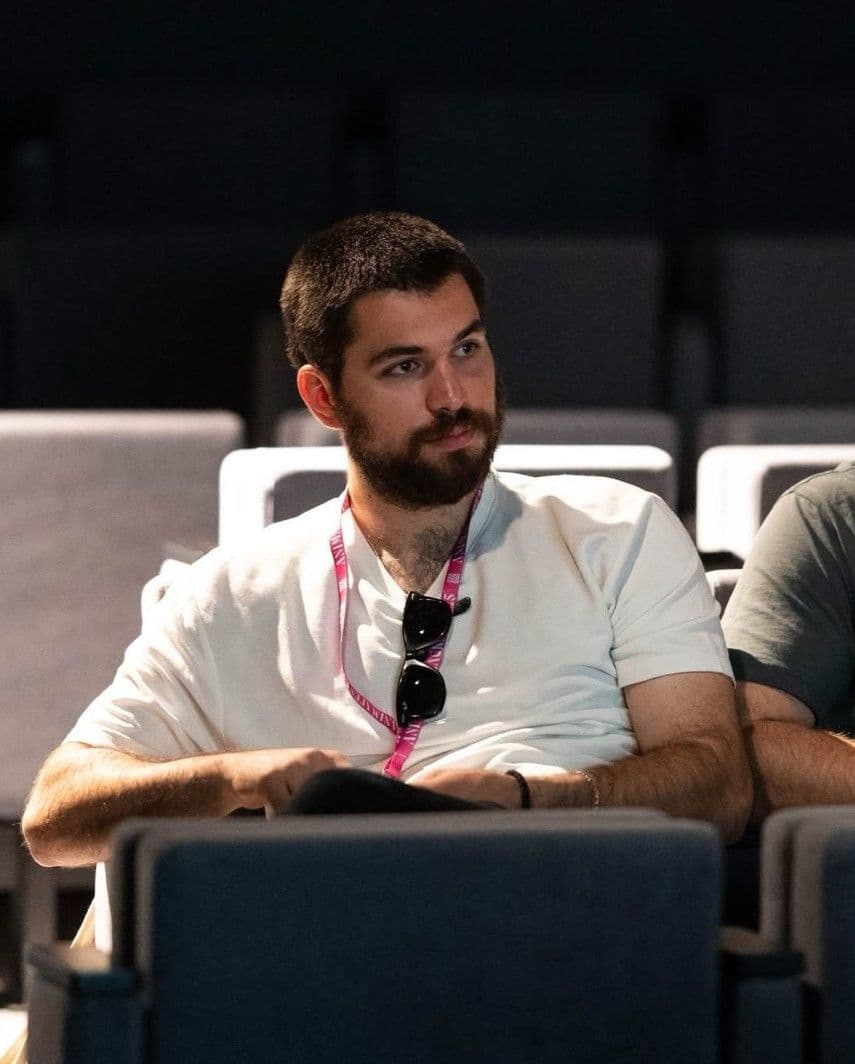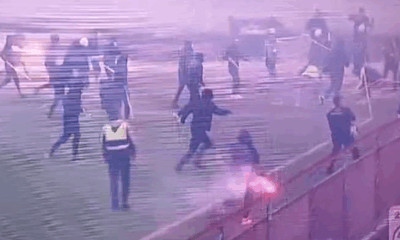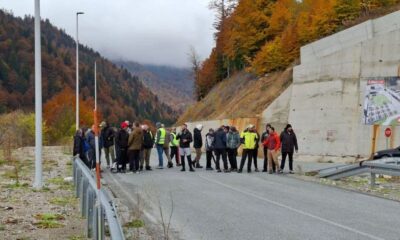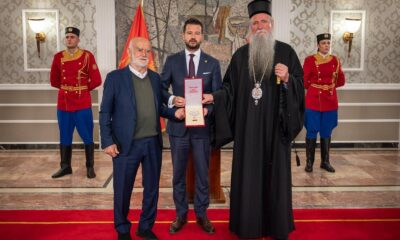Top Stories
Niksic Named European Capital of Culture 2030, Sparking Change

Niksic, a city in Montenegro, has achieved a significant milestone by being designated the European Capital of Culture for 2030. This announcement was made during a formal ceremony at the House of European History in Brussels, marking a historic achievement for the city and a notable recognition for Montenegro as a whole. Competing against cities like Lviv in Ukraine, Niksic secured the title by demonstrating a clear vision for cultural development and a strong European dimension.
The successful bid was the result of extensive planning and collaboration. The project, named “Open City,” encompassed a detailed application that highlighted Niksic’s unique cultural identity and its potential for growth in the arts and tourism sectors. The title not only enhances Niksic’s cultural profile but also brings the promise of substantial social, cultural, and economic transformations.
Significance of the Title for Niksic and Montenegro
The title of European Capital of Culture is known to provide long-term benefits, including improved cultural infrastructure and increased tourism. Previous winners have experienced growth in GDP, heightened international visibility, and a stronger sense of community. Niksic now has the opportunity to position itself as a new center for cultural and creative development in the region, offering Montenegro a platform to present itself as a modern European nation.
Mato Uljarevic, the project manager for Niksic 2030, explained the critical factors that contributed to the selection of Niksic. “The European Commission considered various criteria, including our long-term development strategy and the quality of our proposed artistic program,” Uljarevic stated. The application was notably well-rated in the initial selection phase at the end of 2024, and improvements were made in all areas leading up to the final presentation in Brussels, attended by Niksic’s mayor, Marko Kovacevic, and Minister of Culture and Media, Tamara Vujovic. Their presence signaled robust support for the initiative at both local and national levels.
Building a European Dimension
The European dimension of the project was deemed essential by the European Commission. Uljarevic elaborated that this dimension connects local heritage with European principles and values, highlighting best practices across the continent. At the time of application, Niksic had established over 420 European partners and received more than 250 formal letters of support.
The project’s concept draws inspiration from the radial urban planning model of Josip Slade, reflecting the city’s historical role as a cultural and social hub in the late 19th century. Niksic aims to reclaim this role, bridging Montenegro with Europe, and fostering collaborations that highlight shared values and heritage.
Uljarevic emphasized the importance of this title not just for Niksic but for Montenegro as a whole. “Projects like this often impact entire regions, and in our case, the entire country will benefit.” He pointed out that the project will require the skills and energy of creative professionals and artists from all over Montenegro.
The European Capital of Culture initiative is particularly significant for cities like Niksic, which have historically been recognized as industrial centers. Uljarevic believes that this project has the potential to transform perceptions and instill pride among residents, as cultural initiatives can drive societal change.
Future Plans for Cultural Development
In the next five years, Niksic will prepare for its role as the European Capital of Culture by focusing on a diverse range of artistic and cultural activities. Uljarevic highlighted the importance of capacity-building projects, which aim to enhance the skills necessary to execute such a significant cultural undertaking. The plan includes integrating both traditional and contemporary expressions of culture and connecting local narratives to broader European values.
The project is designed to be inclusive, ensuring that cultural content is accessible to everyone, not just a select few. “Culture must belong to all,” Uljarevic stated, stressing the need for active participation from the community. Plans are underway to launch the Openminders volunteer platform, promoting engagement among all social groups in the realization of the project.
As Niksic prepares for its role in 2030, Uljarevic is optimistic about the city’s future. “I believe it is inevitable that Niksic will become not only a cultural but also a social and developmental epicenter for Montenegro.”
The title of European Capital of Culture does not automatically come with financial support from the European Commission. However, Niksic is set to receive the Melina Mercouri Prize, valued at 1.5 million EUR, contingent on the project’s readiness by 2029. Additionally, there is an expectation of increased funding from EU sources, which will help facilitate the ambitious plans for cultural and infrastructural development.
Uljarevic outlined the overall budget for the Niksic 2030 project, estimating 40 million EUR for operational costs over six years, with similar amounts earmarked for infrastructure projects. The Montenegrin government and Niksic municipality have already committed to funding key aspects of the project, with about 12.5 percent of the total budget expected to come from EU funds and private sector sponsorships.
As Niksic embarks on this transformative journey, the community can anticipate significant advancements in cultural infrastructure, including the long-awaited completion of the Revolution House, a central project that will serve as a hub for creative activities. Additional plans also include the revitalization of cultural heritage sites and the establishment of decentralized cultural hubs across the region to ensure equal access to cultural resources.
The Niksic 2030 initiative promises to bring profound changes not only to the local economy through increased tourism and employment but also to the overall cultural landscape of Montenegro, paving the way for a brighter future.
-

 Entertainment2 months ago
Entertainment2 months agoAnn Ming Reflects on ITV’s ‘I Fought the Law’ Drama
-

 Entertainment3 months ago
Entertainment3 months agoKate Garraway Sells £2 Million Home Amid Financial Struggles
-

 Entertainment2 months ago
Entertainment2 months agoCoronation Street’s Carl Webster Faces Trouble with New Affairs
-

 Health2 months ago
Health2 months agoKatie Price Faces New Health Concerns After Cancer Symptoms Resurface
-

 Entertainment2 months ago
Entertainment2 months agoWhere is Tinder Swindler Simon Leviev? Latest Updates Revealed
-

 Entertainment3 months ago
Entertainment3 months agoKim Cattrall Posts Cryptic Message After HBO’s Sequel Cancellation
-

 Entertainment2 months ago
Entertainment2 months agoOlivia Attwood Opens Up About Fallout with Former Best Friend
-

 Entertainment2 months ago
Entertainment2 months agoMasterChef Faces Turmoil as Tom Kerridge Withdraws from Hosting Role
-

 Entertainment3 months ago
Entertainment3 months agoSpeculation Surrounds Home and Away as Cast Departures Mount
-

 Entertainment3 months ago
Entertainment3 months agoMarkiplier Addresses AI Controversy During Livestream Response
-

 World2 months ago
World2 months agoCole Palmer’s Mysterious Message to Kobbie Mainoo Sparks Speculation
-

 Entertainment2 months ago
Entertainment2 months agoITV’s I Fought the Law: Unraveling the True Story Behind the Drama



















